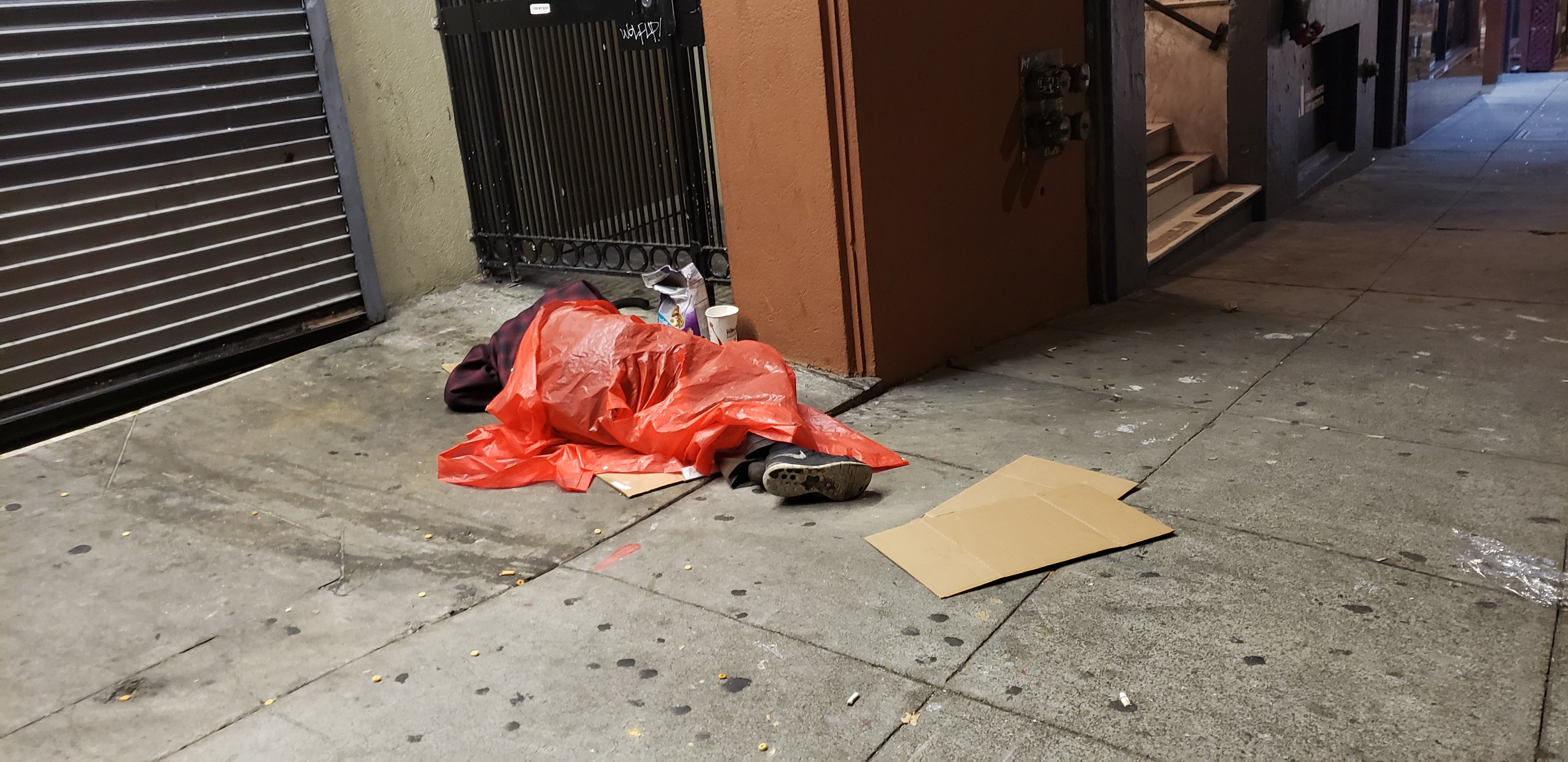
By David M. Greenwald
Executive Editor
San Francisco, CA – While Grants Pass v. Johnson overturning a lower court ruling that had barred cities from citing and arresting people simply for being homeless was disappointing, the more impactful case for local homelessness is still alive and coming out of San Francisco,
“Today’s shameful decision guts a key civil rights protection for unhoused people, but it will not derail our lawsuit against San Francisco, which has policies and an ordinance requiring the city to offer shelter before clearing encampments,” said John  Do, senior attorney at the ACLU of Northern California on Friday following the ruling announcement.
Do, senior attorney at the ACLU of Northern California on Friday following the ruling announcement.
However, the Lawyers Committee for Civil Rights noted that Grants Pass addressed only one of 13 claims in Coalition on Homelessness v. City of San Francisco, which challenges the city’s costly and ineffective practice of destroying unhoused individuals’ belongings, and citing, arresting, and moving them without offering real alternative shelter.
“Because the city has a history of not keeping its word, we’ll be watching closely. San Francisco should not interpret this ruling as a green light to unlawfully crack down on unhoused residents simply for being unable to afford housing, and instead must commit to moving more people off the streets and into affordable housing or emergency shelter,” Do added.
Specifically, the LCCRSF noted, “The Grants Pass case did not address the city’s pattern of destroying property, its failure to provide accommodations for people with disabilities, nor whether the methods used to clear encampments unlawfully endanger people’s lives.”
These claims remain unresolved and will be at issue when the case goes to trial in May 2025.
“We will continue to fight to ensure that San Francisco follows the law and its own policies in safeguarding the rights and property of unhoused residents,” said Nisha Kashyap, Program Director of Racial Justice at the Lawyers’ Committee for Civil Rights of the San Francisco Bay Area. “This includes upholding critical Fourth Amendment rights to be free from property destruction by the government.”
LCCRSF added, “Allowing cities to cite and arrest unhoused people for sleeping outside will funnel vulnerable individuals into the criminal legal system. Even if they ultimately prevail in court, the damage will be done. Being arrested, or having a criminal record, warrant, or unpaid court fines can trap people in homelessness by making it more difficult for them to secure public benefits, employment, and permanent housing.”
“Cities should not punish people for being poor,” said Jennifer Friedenbach, executive director of the Coalition on Homelessness. “While the most recent data shows that the number of people living on the street in San Francisco has decreased since we filed our lawsuit, homelessness has risen overall in recent years because people are struggling to pay rent and make ends meet. The solution is, and has always been, safe and affordable housing. But instead of tackling root causes, elected leaders have chosen to penalize residents who have nowhere else to go.”
One of the problems with Grants Pass is that it doesn’t solve the problem. Under the previous ruling, a jurisdiction could clear an encampment if they had adequate services and beds for the homeless people who were relocated.
Grants Pass upends that, but it leaves local communities in a bind.
What are they going to do? The options are limited. They can make someone move and clear out the encampments, but that is just going to dislocate someone. They can arrest them on a variety of charges.
But one of the interesting facets of this is that the cost to house someone for a year in permanent supportive housing is about $17,000, but to jail someone it costs around $60,000 and upwards—to as much as $130,000 depending on the facility.
One approach that could work is to have social workers be able to work with the local homeless population, create trust and relationships and access services that way—but that requires, of course, time and patience as well as available beds and programs.
The point is that using an enforcement approach is actually a lot more costly and is unlikely to produce the desired result of getting people off the streets and into permanent supportive housing.


